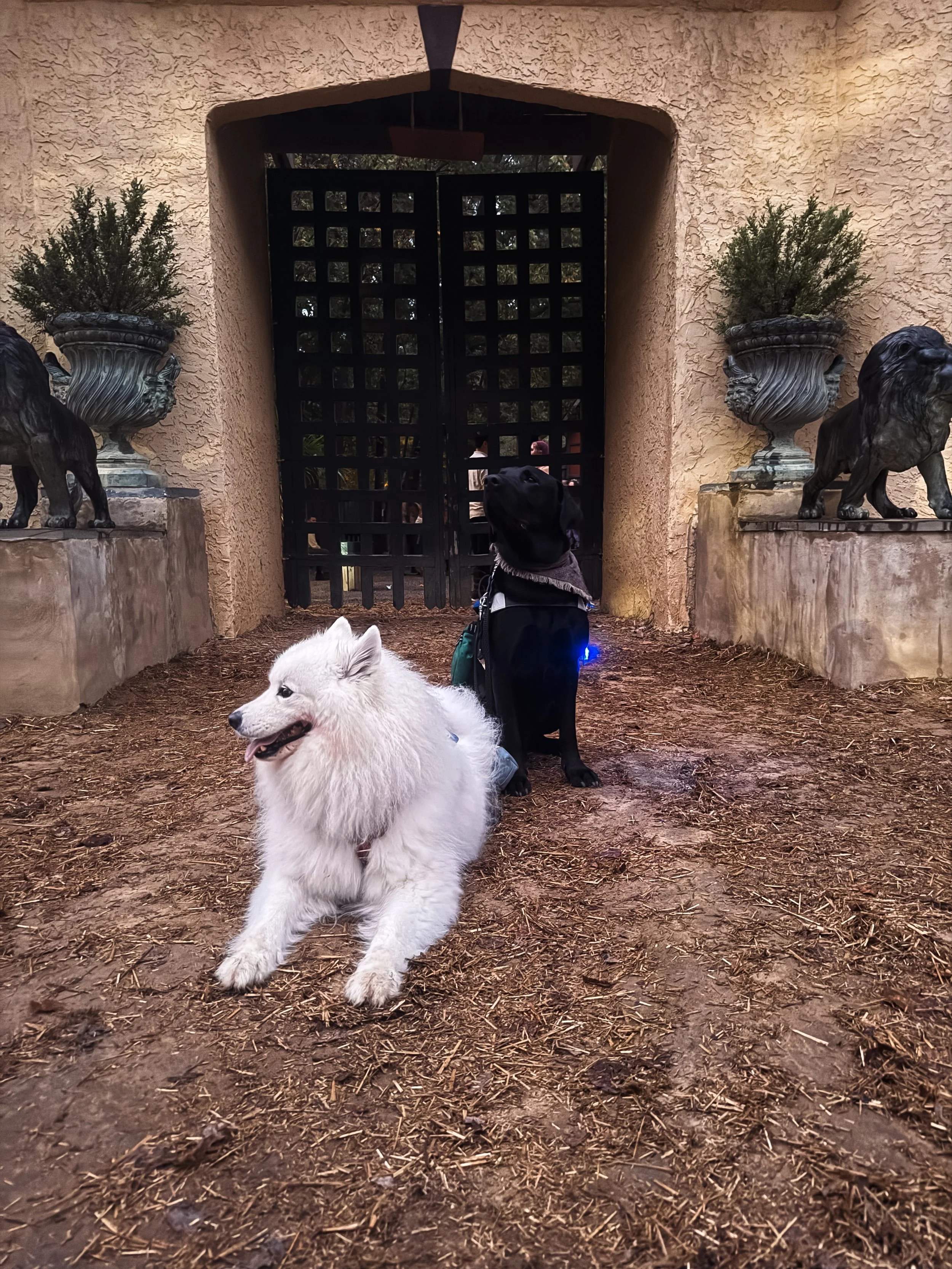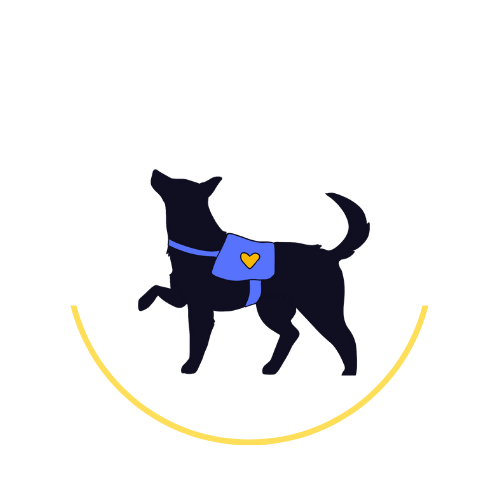
Frequently Asked Questions
General FAQ
-
It’s important to choose a trainer that is knowledgeable + experienced in your specific goals (ie. sports, behavior modification, service work, or reactivity). Trainers that rely on harsh corrections use fear & intimidation to control dogs. They often do so because they lack the in-depth knowledge of canine behavior and psychology. A good trainer will be knowledgeable in force-free methods and seek to eliminate aversion. Look for someone that is LIMA, force-free, or R+ based and has sufficient experience working with dogs of all ages and breeds.
-
Helping Howls is fear-free, positive reinforcement based. Our training uses positive, reward-based methods. We believe in fun and enjoyable training for our dogs. Our approach is designed to create a change in both behavior and mindset. This way, dogs can be fulfilled both mentally and physically. We help our dogs love training and working alongside their owners. Not only are our methods effective but they carry no risk of harming a dog mentally or physically. Ethics in training are a huge priority and we will never knowingly cause pain, discomfort or harm to dogs to accomplish our goals.
-
Yes! Helping Howls utilizes a variety of techniques to help dogs succeed. Additionally, our training utilizes classic and operant conditioning principles. This science-backed approach has been shown to be effective on all dogs, regardless of age and breed. We recognize that breed often plays a role in dog’s learning style and are prepared to adapt to your dog’s unique needs. Helping Howls takes pride in our ability to train dogs but also recognize that some cases are beyond our scope. When appropriate, we may refer you to a behaviorist or another trainer that specializes in your specific area of need.
Helping Howls does not work with severe behavioral or aggression cases. Contact us for a referral to a qualified behaviorist in your area.
Service Dog FAQ
-
Any person with a disability qualifies for a service dog! If you have a mental, cognitive, or physical condition or disability that impairs one or more major life functions, your right to be accompanied by a task trained service dog in public spaces is protected under the Americans with Disabilities Act. “Disability” is loosely defined by the ADA and it is ultimately up to an individual and their medical team to decide whether a service dog is the best option.
-
A service dog is any dog that has been trained to perform tasks to mitigate their handler’s disability. For example, guiding a blind person or alerting a hearing impaired person to a fire alarm. Service dogs can be trained to help individuals with all kinds of disabilities, from mobility to psychiatric. A properly trained and paired service dog can not only provide help during medical events and emergencies, but also make daily tasks easier, more enjoyable and more accessible.
-
Maybe! Service work requires a specific temperament and drive to work. A good service dog candidate will be confident, tolerant, and eager to please. A dog also needs to be healthy and free of any disabling conditions. We also recommend beginning training as a puppy or young adult due to the lengthy process. If your dog sounds like a good fit, enquire about an evaluation so we can discuss your dog and your specific needs.
-
Helping Howls currently offers:
Psychiatric
Mobility
Autism
Seizure Response
Medical Response
Allergen Alert
Diabetes Alert
Medical Alert
Hearing Alert
Service Dog Prospect Selection
Puppy Raising
We do not offer full guide dogs.
-
No. ESAs are pets used as part of a mental illness treatment plan. Unlike service dogs, they do not require task training, are not permitted in public spaces unless those spaces are designated as pet friendly, and must abide by all pet fees and regulations on airplanes. ESA status is solely intended to allow these special pets to live in non-pet friendly housing with their people who need them. If you’re looking for ESA training, we can help with all levels of pet training, as well as provide support in training home manners.
-
The training process for a service dog begins with the Foundations Phase, which focuses on establishing essential skills and a strong bond between the dog and handler. This includes teaching the dog calmness, focus, impulse control, and adaptability to various environments. The handler learns how to use positive reinforcement techniques, interpret dog body language, and develop effective training plans.
During this phase, the dog is exposed to new experiences to build confidence and socialization while practicing life skills like loose-leash walking, recalls, and proper greetings. This stage ensures the dog is well-prepared for the more advanced training phases and establishes a solid framework for teamwork and communication between the handler and the dog.
The next stage involves public access training, where dogs are taught to navigate various environments like stores, restaurants, and public transportation safely and confidently. Alongside this, the dog is trained to perform customized tasks that mitigate the handler’s disability, such as retrieving items, providing mobility support, alerting to medical conditions, or offering psychiatric assistance.
Throughout the process, handlers are trained in positive reinforcement techniques, understanding dog behavior, and legal self-advocacy under the Americans with Disabilities Act (ADA). The training is collaborative and focuses on building a reliable and respectful partnership.
The journey concludes with a Public Access Test (PAT), ensuring the team meets high standards for behavior and task performance in public settings. Additional support, like ongoing evaluations and recertifications, helps ensure the team continues to work effectively together. This comprehensive approach fosters a successful partnership that enhances the handler’s independence and quality of life.
